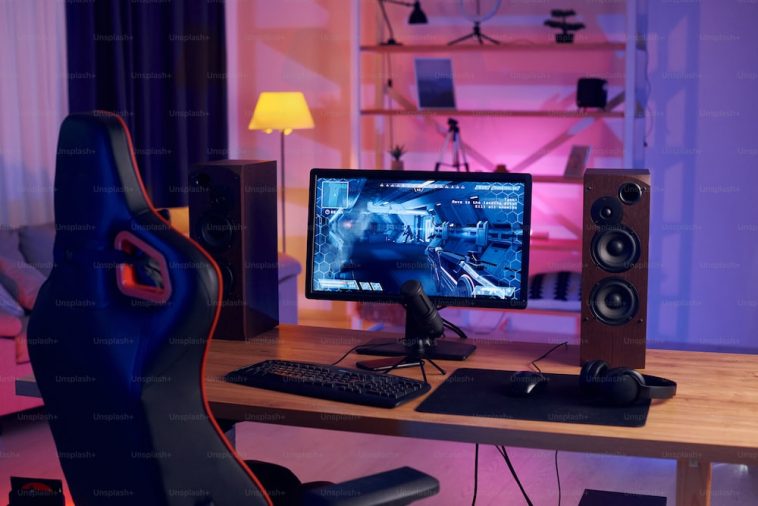Introduction.
Setting up a gaming tournament can be one of the most rewarding projects for anyone passionate about video games and building a community.
With gaming’s massive growth, tournaments have gone from casual living room competitions to global events that attract millions of players and viewers. .
Let me walk you through everything you need to know to get started.
Why Gaming Tournaments are a Big Deal
Gaming tournaments have become more than just a fun pastime—they’re serious events with real impact.
According to Newzoo’s 2023 esports report, the global esports audience reached 540 million people, and the industry itself is worth over $1 billion annually. People are not just playing games; they’re watching, learning, and forming tight-knit communities.
Even on a smaller scale, gaming tournaments are a great way to bring people together, showcase talent, and create lasting memories.
Plus, with the right setup, they can also be a solid opportunity to raise funds, support charities, or promote a brand.
How Do I Set Up a Gaming Tournament?
1. Decide on the Game
Your first decision is choosing the game or games for your tournament. Here’s what to keep in mind:
- Popularity: Games like Fortnite, League of Legends, Valorant, and FIFA usually attract more participants.
- Audience: Pick a game your target audience loves.
- Accessibility: Choose games that are easy for players to access, ideally ones available across platforms.
2. Define the Format
The tournament’s structure sets the tone for the entire event. Here are a few common formats:
- Single Elimination: Lose once, and you’re out.
- Double Elimination: Players get two chances before being eliminated.
- Round-Robin: Everyone plays against everyone. Great for smaller tournaments.
- Bracket Style: This works well for larger competitions.
Decide whether the competition will be online, in-person, or a mix of both. Online tournaments are easier to set up and more cost-effective, while in-person events provide a stronger sense of community.
3. Set a Budget
Your budget will guide your choices for venues, prizes, and promotions. Here’s what to factor in:
- Venue costs (if it’s in-person)
- Prizes or rewards
- Streaming or broadcasting setup
- Marketing
- Food and drinks (if hosting locally)
Even a modest budget can create a fun experience if you plan wisely.
4. Choose a Venue (If It’s In-Person)
For local events, pick a venue that has a strong internet connection, ample power outlets, and enough space for players and spectators. Gaming cafes, community centers, or school halls are excellent starting points.
5. Gather Equipment
Players will likely bring their equipment (controllers, headsets), but you should provide:
- High-performance PCs or consoles
- Monitors
- Comfortable seating
- Backup cables and chargers
- Networking equipment
If the tournament is online, you’ll need a reliable platform. Popular tools include Discord, Toornament, and Battlefy.
6. Set the Rules
Write down the tournament rules and share them with participants well in advance. Cover these basics:
- Match schedules
- Scoring system
- Code of conduct (sportsmanship, anti-cheating rules)
- Penalties for violations
7. Promote Your Tournament
Even the best-planned event needs good promotion. Use social media, gaming forums, and email newsletters to get the word out. Create shareable posters and videos, and reach out to local gaming communities for support.
If you’re hosting a larger event, consider partnering with streamers or influencers who can help you reach a bigger audience.
8. Manage Registrations
Set up an easy system for participants to sign up. Tools like Google Forms, Smash.gg, or Eventbrite are great for this. Include fields for:
- Player names and contact details
- Gaming platform and username
- Any special requirements (e.g., accessibility needs)
9. Organize Prizes
Prizes are a big motivator for players. They don’t have to be extravagant; gift cards, custom trophies, or gaming gear can be just as exciting. If you have sponsorships, use those funds to boost the prize pool.
10. Run the Tournament
On the day of the event, focus on keeping everything smooth. Have a team ready to help with:
- Game setup and troubleshooting
- Enforcing rules
- Answering questions
If the event is online, ensure your internet and streaming platform are stable. For in-person events, make sure every station is tested before players arrive.
Common Challenges and How to Handle Them
- Technical Issues: Always have backup equipment and test everything beforehand.
- No-Shows: Build a buffer into your schedule to handle delays or dropouts.
- Rule Disputes: Appoint a neutral referee to resolve conflicts.
FAQs
Q: How many players do I need for a successful tournament?
A: It depends on the game and format. A 16-player bracket is a great starting point for small tournaments, while larger games like battle royales can support hundreds of players.
Q: Do I need a license to host a tournament?
A: Some games require you to obtain permission or a license to host a tournament, especially if there’s an entry fee or prize. Check the game’s official guidelines.
Q: Can I make money from hosting a gaming tournament?
A: Yes! You can generate revenue through sponsorships, ticket sales, or streaming ads. Just make sure you cover your costs first.
Q: How do I find sponsors?
A: Reach out to local businesses, gaming gear brands, or even food delivery services. Show them how supporting your event can benefit them.
What’s Next?
Setting up a gaming tournament takes effort, but it’s worth it when you see players engaged, fans cheering, and everything coming together. With proper planning, you can turn your event into something memorable.
So, what kind of tournament would you love to organize next?





GIPHY App Key not set. Please check settings